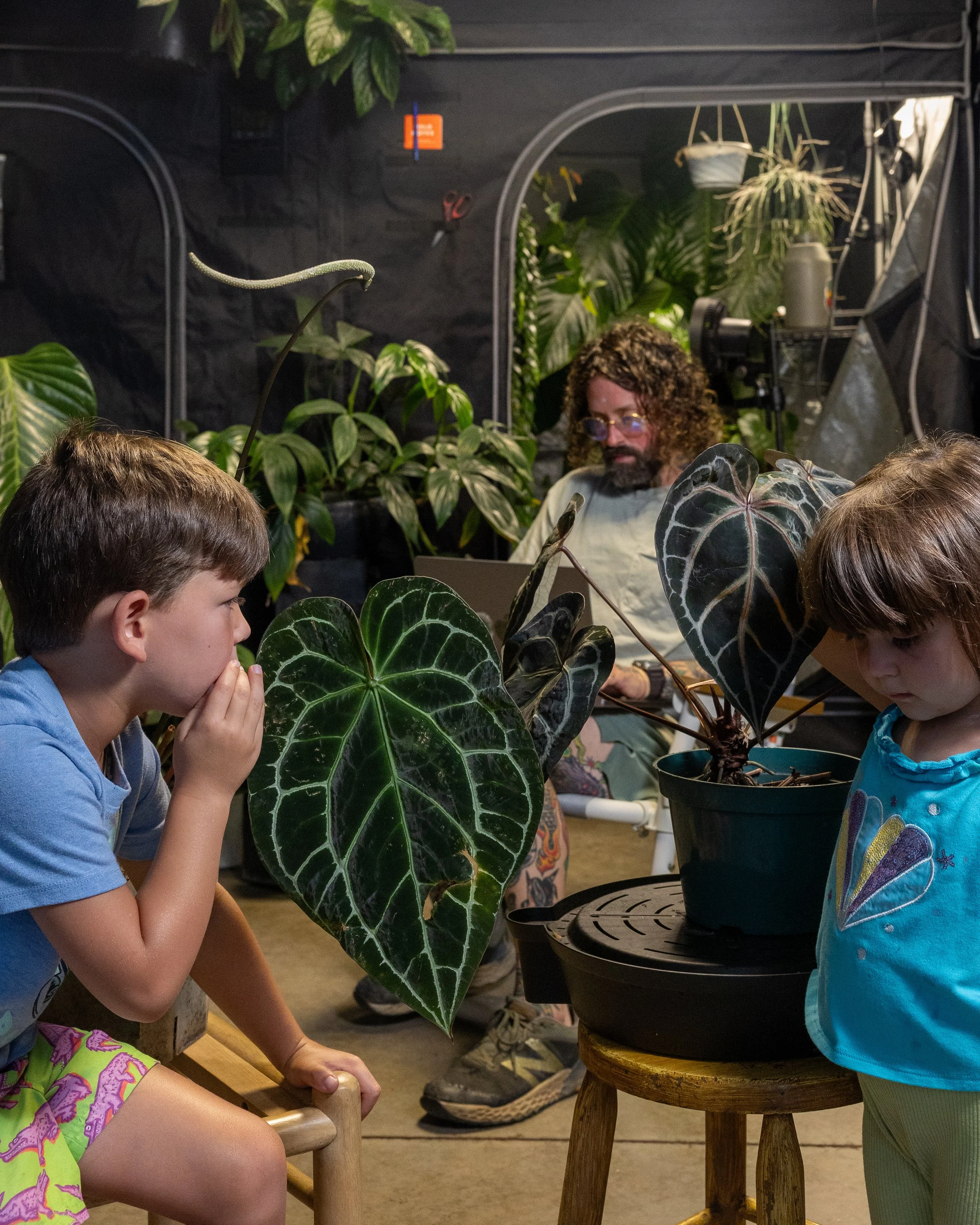A Nicely Manicured and Domesticated End to Animism
Preface:
As someone just learning for fun, I don’t claim to be an expert, historian, or scientist. I grow plants for a living, so don’t come here for answers. These blogs are just meant to intrigue the inquisitive mind and inspire further exploration on your own… even if it’s a completely different and unrelated subject. Learn something today. Write it down. Go back and learn a little more tomorrow.
Imagine you’re a Paleolithic human. No smartphone. No calendar. No word for “planet” or “photosynthesis” or “God.” You’re barefoot. Hungry. Completely embedded in your environment. And when lightning hits a tree, you don’t analyze it. You honor it. The fire is alive. The tree was a being. You might even sing to it.
That’s animism.
Not a religion. A way of relating. A worldview where every gust of wind, every bird call, every rock, leaf, or river had presence, agency, meaning.
But something shifted.
Somewhere between foraging and farming, we began to draw a line between “alive” and “not alive,” “us” and “them,” “sacred” and “mundane.” We invented fences. Calendars. Property. Deities that lived above the sky instead of within the land.
Agriculture didn’t kill animism outright, but it tamed it. Domesticated it. A cordial little death.
We moved from relationship to control. From asking the forest for permission… to clearing it for yield. From belonging to controlling.
And maybe that was inevitable.
Or maybe it was brilliant.
More food. Bigger groups. Written language. Science. Cities. WiFi.
But I grow tropical plants for a living. And sometimes I wonder when I’m misting a velvet-leaf Anthurium, watching a Monstera unfold a new leaf whether intelligence ever needed to be separate from ecology. Whether awareness was ever meant to be cordoned off into skulls and satellites… and most importantly… can we reconnect?
Because in the jungle, everything collaborates. Everything exchanges. There’s no central brain, no “alpha” vine. Just a wildly intelligent network of responses light, humidity, scent, gravity all tuning into each other. Connectivity.
And sometimes, when I see how humans treat the Earth or each other I don’t think we’re too evolved.
I think we’re the species that forgot we’re part of the conversation.
Maybe what evolution wants next is not another upgrade in dominance, but a return to participation. Not regression. Not utopia. Just… remembrance.
The hunter-gatherer world was not a paradise. It was violent, uncertain, and short-lived. But it carried with it a rhythm a sense that humans were a part of a great ecology, not its master.
but…
Could there be hope for us to reconnect on our own??
What if the detour away from nature was necessary for humans to evolve into beings that could one day choose to return?
Voluntary animism:
Perhaps agriculture was not a fall from grace, but an evolutionary long game. A step away from immediate reciprocity with nature, so that… in time, a species might grow capable of choosing reconnection freely with intention, and with care. Early humans practiced animism out of necessity. Modern humans can only return by choice. That choice is rare and hard-won, but it's a leap that can happen. A leap that will now occur after the abstraction, cities, language, and a weird final ingredient: the alienation of modernity.
Time was needed.
The Earth doesn’t need us to remember that we come from it. It needs us to realize it and choose, for us to live like we remember. Maybe nature didn’t lose us maybe it seeded us with the ability to step back and see.
What if the arc of Homo sapiens isn’t a fall from grace, but a wide orbit designed all along to bring us back not as instinctual animals but as beings capable of voluntarily recognizing the sacred in the soil.
Hunter-gatherers lived close to nature, but it wasn’t a voluntary harmony; it was survival. Their population remained small, their reach limited, their myths localized, their science restricted.
But now, as planet-dominating apes with language, abstraction, and global networks… maybe we’re finally in a position to make the old animism conscious.
To choose it, not just inherit it.
Our ancestors wiped out megafauna and deforested landscapes. But starting with us, our descendants might be capable of ecological stewardship not because they stayed close to nature but because they stepped away and came back wiser. The destruction that leads to preservation…
at least until entropy increases, the sun runs out of hydrogen, Andromeda hits, the cyclical loops of Grand Cosmology progress to a singularity, or a Deity decides they’ve had enough of our BS.
until then
I’m for a rewilded animism. One we choose.
Not because it feels spiritual. But because it’s intelligent.
So this is where we start. With plants. With stories. With questions no one’s asking out loud. And maybe, with a little dirt under our nails… we remember how to listen again.
These aren’t footnotes these are Field Notes from a jungle deep in spacetime,
some sources that cracked my brain open and helped me rethink what it means to be human in a world full of life. Use them however you want.
• The Sunghir Burials: https://www.nature.com/articles/nature04828
• The Dawn of Everything by David Graeber and David Wengrow: https://us.macmillan.com/books/9780374157357/thedawnofeverything
• The Mind in the Cave by David Lewis-Williams: https://press.uchicago.edu/ucp/books/book/distributed/M/bo3533931.html
• Animism: Respecting the Living World by Graham Harvey: https://www.hurstpublishers.com/book/animism/
• Braiding Sweetgrass by Robin Wall Kimmerer: https://milkweed.org/book/braiding-sweetgrass
• How Forests Think by Eduardo Kohn: https://www.ucpress.edu/book/9780520276109/how-forests-think
• The Spell of the Sensuous by David Abram: https://www.penguinrandomhouse.com/books/28821/the-spell-of-the-sensuous-by-david-abram/
Additional links:
- https://www.sapiens.org/archaeology/paleolithic-burial-sunghir/
- http://cosmology.com/Cosmology13.html
- https://thejournalofcosmology.com/Consciousness159.html
- https://www.cambridge.org/core/journals/cambridge-archaeological-journal/article/geometry-and-architectural-planning-at-gobekli-tepe-turkey/2CBAF416E33AFE6496B73710A2F42FF9
- https://www.pnas.org/doi/10.1073/pnas.1721726115
- https://www.britannica.com/topic/modernization/Population-change


